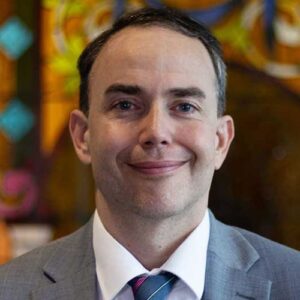
Readings:
Reading I: Ex 20:1-17
Psalm: 19:8, 9, 10, 11
Reading II: 1 Cor 1:22-25
Gospel: Jn 2:13-25
Today’s Gospel is challenging on at least two levels.
First, it is challenging because of its history of being interpreted to harm our Jewish brothers and sisters. Moreso than any other canonical writing, Christians have used John’s Gospel as “evidence” for anti-Semitic violence in theology, belief, and action. This Gospel, composed in the early second century by a “Jewish-Christian” community during the painful divorce between what would later become diaspora rabbinical Judaism and what would later become Gentile Christianity, has been weaponized in horrific ways for millennia and continues to be today. We Christians remain in the infancy of a process of recognizing harm and confessing guilt, let listening to needs and offering repair, so, it is with great caution that we engage this Gospel, especially during the Lenten season
Second, it is challenging because many of us in the 21st century do not understand the prophetic tradition within ancient and Second Temple Judaism. This is a rich and complex tradition that no simple Sunday reflection can address with any measure of justice. It is with these challenges in mind, that I offer a way into understanding this reading.
Sometimes you don’t know what you don’t know. And what you don’t know can enable harm to others. That is one way of looking at the tradition of the Jewish prophets. They looked at their people with love, the love of a devoted God already and always among them in an irrevocable covenantal relationship, and noticed that harm was being done. Moreover, the very harm being done was apparent to God and apparent to the prophet but was not recognized by many of the people.
I can attest to this from personal experience. As a child, all structures and institutions that were meant to protect me broke down and failed. I am a victim-survivor of years of childhood predation. You see, after the initial attacks and in the years of their aftermath, no one recognized anything. Not my parents who were supposed to protect me. Not the adults at the schools who must have noted a change in my behavior. Not the parents of friends who had to wonder why this child was suddenly limping and calling adults by their first names. Not the doctors who treated me in the hospital. Not the priest in the confessional. Not the police who were never called. Not the parish that was supposed to be Christ’s Body of salvation for the most vulnerable and forlorn. And definitely not my extended family structure who actually were the problem.
A child had been harmed for the first of many times and the multiple layers of community simply could neither see nor recognize what was happening. Or, perhaps they were unable to conceive of it as a possibility. My perpetrators’ and enablers’ motives aside, the rest of the layers of community were not malicious, were not morally deficient, and actually had a track record of taking care of the poor and vulnerable. But they failed me, they undoubtedly failed others, and they didn’t even know they were failing us until it was too late and the harm was irreversibly etched into our bodies. My story is distinct but it is neither unique nor an anomaly in communities like mine. Stories like mine are voluminous. It is all-too-common and still mostly unrecognized.
It is from this experience I look at the challenges for making sense of this week’s Gospel and the prophetic tradition lived by Jesus. Even the most compassionate and righteous religious and social systems do not have infinite capability, infinite goodness, nor infinite efficacy for positive results. Human finitude, and the propensity for sinfulness that can be activated alongside this finitude, suggest that within any system some of the most vulnerable will fall through the cracks. The nature of ignorance, sin, and evil is such that the oppression, affliction, and suffering of some may remain obscured from the stakeholders of a system and may not be recognized by its many members. It may not be due to malice, moral deficiency, or a lack of desire to do what is good. It is simply that those who are being sinned-against are neither seen nor recognized as such and are unintentionally left to fend for themselves. And this, in situations of severe oppression, affliction, and suffering, this results in continued and compounded harm to the sinned-against who may be hidden in plain sight.
Like I was. Systemic failure is something with which I am well-acquainted. It is part of the tragic consequences of a fallen world where God’s full and just reign is far from complete.
As we go through this week, perhaps the Gospel teaches us at least one thing: be prepared to have your eyes opened to the plight of the sinned-against who are close to you. We all have blindspots. And, oftentines, someone is being harmed in that blindspot. When you are no longer blind, follow the lead of Jesus: make “good trouble” so that others may see. And, as others begin to see, work to build a community of compassion that can accompany the sinned-against in their journey of truth-telling, healing, reapair, and building a world where such blindspots no longer are possible.
Dr. Kevin Considine
Director of the Robert J. Schreiter, CPPS Institute for Precious Blood Spirituality